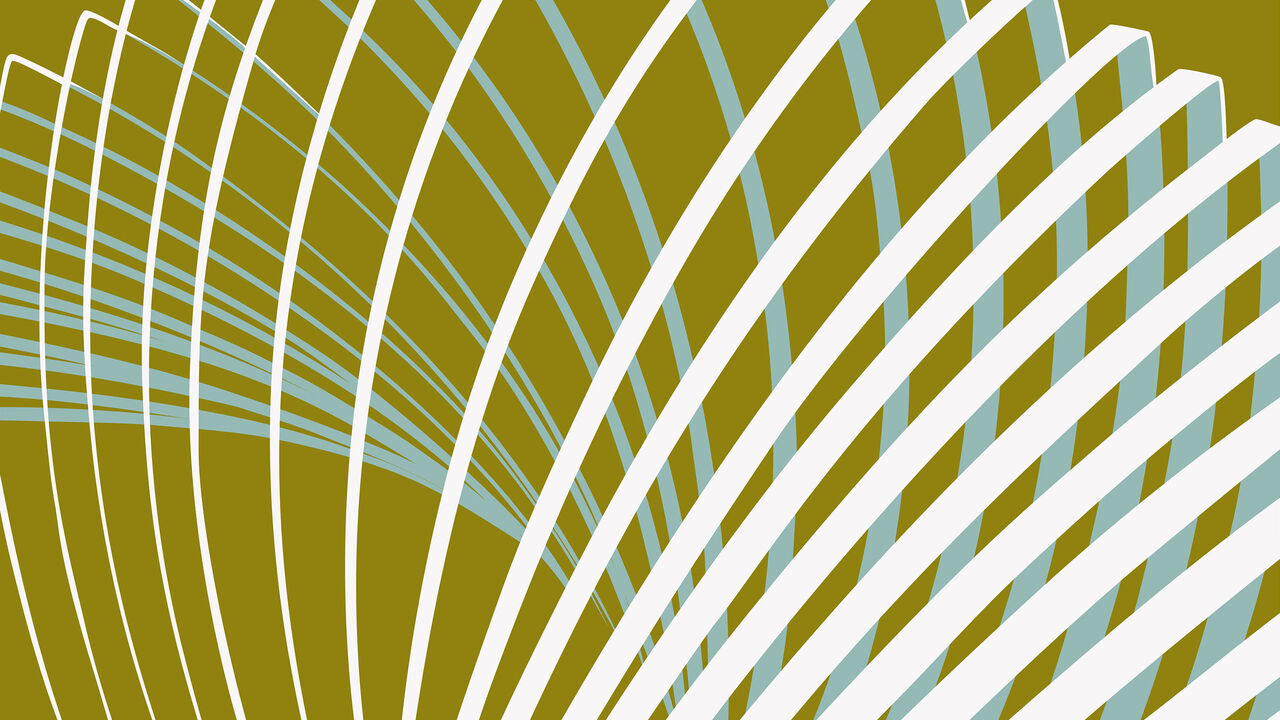Living the High Life: Isolation Lessons From Space
At the start of April 2020, about 3.9 billion people (half the earth’s population) were placed under stay-at-home orders. Depending on where you live—or where you’re stuck—you’ve probably been in some form of lockdown for several weeks now.
Most of us don’t have much experience at this. Being physically isolated is a new challenge we’re grappling with, as our world shrinks and accomplishing everyday tasks becomes more complex.
Thankfully, there’s a group of people we can learn from. They’re used to confined spaces and long stretches without seeing new people, as well as accomplishing their work in adverse conditions.
They’re called astronauts, and they have some uniquely relevant wisdom to share with us during this strange, sequestered time.
Learning to be still
Scott Kelly, retired NASA astronaut, spent just shy of a year on the International Space Station from March 2015 to March 2016. During that time, Russian cosmonaut Mikhail Kornienko was his only constant companion.
In total, Kelly has spent 520 days in space, putting him in the top tier of space endurance. For the record, Peggy Whitson holds the ‘most time in space’ title (665 days in total); that includes two six-month tours of duty on the International Space Station.
Kelly has long been an outspoken booster for NASA and space exploration in general. He was a big Twitter and social media user during his 2015-2016 mission, and held regular news conferences to engage public interest in his mission. In retirement, he continues to remain a prominent public figure (check his crazy follower count on Twitter).
Recently, he’s been non-stop sharing his space tips for the time of coronavirus. He even did an article for The New York Times.
Below are some of the key takeaways.
Stay in touch, remotely
Some of us enjoy a hearty slice of solitude, but there’s always a tipping point where ‘getting in touch with yourself’ moves over to nagging loneliness.
Loneliness is generally defined by health practitioners as “an emotional response to the perceived mismatch between the amount of personal contact a person wants and the amount they have.” It affects everyone at some point in life. And of course, it affects a ton of us at this particular point in time, the inevitable side-effect of not being able to meet new people, see old friends or drop in on parents and older relatives.
The thing is, beyond being psychologically unpleasant, loneliness is also quite bad for your physical well-being. Feelings of social isolation raise stress hormones and increase your body’s inflammatory response. In the long-term, this can literally warp our genes and produce negative health impacts like high blood pressure, cognitive decline, and more.
On the other hand, staying in touch with friends and family can actually boost your immune system and help you fight off illness. Being socially connected increases our life expectancy, reducing the risk of premature demise by 50% (according to the American Psychological Association).
And of course, this community can function in a geographically distributed way, held together by the internet rather than face-to-face encounters. Much as astronauts have their video link back to mission control, we have our magic phones and video conferencing apps to tie us to our social worlds.
If you’re separated from a partner, spouse, family, or roommate that you’d normally be living with, here’s a tiny pro-tip from Scott Kelly’s wife, Amiko Kelly.
When her husband was away, she’d take pictures of the mail that arrived for him, and other normal everyday things in the neighborhood. That way, he could keep up with all the ‘little things’ happening back home, and feel connected despite his radically different situation.
Pace yourself
To prepare for his 340-day mission to the International Space Station, Scott Kelly decided to treat it like a marathon. By breaking the giant amount of time into manageable chunks, and then focusing on mission ‘stages,’ encompassing research projects, logistical operations, self-maintenance, and so forth, he was able to mentally compartmentalize the experience.
Kelly recognized that living and working in the same space can result in work bleeding into everything.
He found that a good way to force himself to turn off was by delineating times when he simply wouldn’t work anymore. This included organizing movie nights, and occasionally giving in and binge-watching TV shows. Going to bed at the same time every night also helped to ensure he had a basic outline of a routine, no matter what else happened in the day.
Back on earth, we, unfortunately, don’t have the benefit of knowing how long our isolation will last. The lack of any long-term, or near-term end goal to strive for can leave us going in circles mentally.
We can, however, at least be like Kelly on a day-to-day basis, by sticking to a normal schedule that accommodates work, mental and physical exercise, some unwinding, and a ‘normal’ bedtime.
As Kelly approached the end of his time on the International Space Station, he felt he probably put too much emphasis on managing his mental state and fatigue level; he wished he had accomplished more.
Some of us may well feel the same way when this strange situation wraps up, and we realize that instead of writing The Great American Novel, we... watched Netflix.
But hey, given the pressures we’re under, we should be nice to ourselves. And if Kelly can feel okay about watching all of Game of Thrones twice in space, we should probably feel okay about our own couch potato excesses.
Nature helps, so go outside
Apart from lowering your blood pressure and keeping an expanding waistline at bay, going for a walk, run, or ramble is also great for mood improvement.
Thankfully solitary exercise is still an option for most of us. This is one outlet for self-care that astronauts don’t have, given the inhospitable nature of vacuous space. Preparing for a spacewalk takes up an entire day and requires heavy-duty equipment that needs constant monitoring. It’s necessary to go into an airlock and pre-breathe pure oxygen for 1 hour before heading out into space, to avoid getting “the bends” from decompression (exactly like a scuba diver).
Once you enter space, simple tasks become daunting. Manipulating the environment around you needs to be done with giant pressurized gloves that feel “like stiff balloons,” and microgravity makes every movement slow and sloshy. There are also significant time constraints, based on the spacesuit’s consumables.
All that to say, ‘going outside’ up there is not much of a stress reliever.
On the terrestrial plane all we have to do is slap on some sneakers, wash our hands, head out the door, and stay the requisite 2-meter physical distance from other humans. Depending on where you live, you may also still enjoy the luxury of hanging out in the fresh air, and simply enjoying nature.
Nature is still out there doing its thing, and we should find solace in that—in fact, it’s actually thriving as human activity drops.
In the US, National Parks are still operating, albeit with many closures to control the influx of visitors since the start of the pandemic. The general advice from the National Park Service is to stay in your local area, and observe the “Leave No Trace” (pack it in, pack it out) principle.
Listen to experts
In this trying time, it’s really important to separate the signal from the noise. We should “know what we need to know,” but we have to discipline ourselves away from the impulse to information-binge.
Of course, that can seem near-impossible when you’re surrounded by 24-hour media reports on the pandemic and have the CDC’s COVID-19 banners popping up on YouTube. There’s a lot of gloomy news articles to read, and social media is rife with opinions and speculation.
Scott Kelly suggests that we step back and remember that medicine and epidemiology, like rocket science, are really complex.
While living on the International Space Station, he quickly learned to trust the advice of the engineers, scientists, and experts who understood the facility’s design and functions in exhaustive detail. After all, his life depended on them.
We may be able to give ourselves a crash course in pandemics by reading a bunch of stuff on the internet, but ultimately it’s the people with years of education and experience that we should be listening to.
On that note, Johns Hopkins University has great coronavirus resources. So too does the World Health Organization.
Keep a journal
Keeping a journal is a very, very old human tradition. People have been writing down their thoughts for posterity for millennia.
Even though your days might seem dull and repetitive at the moment, there’s still a lot of value in journaling.
Kelly kept a daily record of his time in space, but he decided to focus on his senses and inner state. After several hundred days, routines can get dull and repetitive in space too.
So a journal need not be a “clerical chore.” Putting pen to paper can turn swirling amorphous thoughts into concrete language. The exercise offers the possibility of catharsis, helping you sort out how you’re feeling and the reasons behind it, and in turn what you might do next to change your thought process.
There’s also value in writing down your thoughts in order to leave a record of this extraordinary time period. After all, the last time a global health upheaval of this scale happened was about 100 years ago. And time has a way of making tiny, inconsequential-seeming details of everyday life seem extremely interesting.
The Paris Review has a great article on writing a journal (and also cringing at the journals of one’s former self).
Spaced out times
It may be tough to be stuck in outer space, but generally speaking everyone up there is fulfilling their wildest dreams, having been both talented and lucky enough to squeeze a spot on a space flight mission—as of 2020, the number of people who have traveled off-planet sits at a mere 565.
Meanwhile, on earth, we didn’t choose our situation.
But most of us can still go outside on a whim, and thanks to the incredible resiliency of 21st century supply chains, we still have access to a bewildering variety of foods through delivery apps and grocery stores. If we need or want to order household items, there are various online channels to do so. That’s certainly a lot more convenient than having essential supplies blasted up to you from Earth at irregular intervals.
Although we may feel pretty powerless in our bubbles right now, we really aren’t.
Our ability to be human has not been taken away from us. We can reach out to family and friends via audio and video; we can express ourselves by recording our thoughts; we can enjoy the natural world; we can still make a difference in the lives of others. Some of us can keep working remotely.
Much like astronauts, our emotional algebra has been re-jigged by an extreme situation, and an adjustment is necessary if we want to live better despite the challenges. After all, despite the burden of existential threat facing astronauts day in and day out, they manage to do good work, make meals, relax, and maintain themselves.
We may not be as brave as people who’d willingly blast themselves into space, but we can at least become a teensy bit more functional—just a bit more sane—by thinking through their advice.
If you’re seeking more inspiration for living a better lockdown lifestyle, you may consider checking out our list of remote work and well-being resources for times of isolation.




